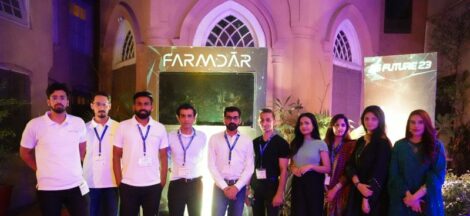This is our second Interview for the ‘Design Thinking’ Series.
Last week I met with and interviewed Muhammad Uzair, Chief Designer at Ephlux (an agile enterprise & application development firm) on his views around design thinking. I sought out more design professionals as a follow-up conversation regarding the last interview and their own approach. The following interview is with Alexandre Parizeau, Producer with Ubisoft, in Toronto. He is notable for his Splinter Cell series.
How does design thinking differ from what others would say is just straight forward business thinking?
Business thinking has a business process around it and first asks the question “How do we make money with this?” and design thinking tries to balance that by creating a product that is desirable, technically feasible and putting this all together. I think the key difference is that business thinking emphasizes the financial viability aspect more than the other while design thinking tries to balance those.
Examples frequented around this approach are inventive products, can it can apply to services & processes?
In service, essentially, the same process applies. You still have to go out and understand customers, the market, your competition. In service design we talk about user experiences in terms of cycles and many other types of interactions. Honestly I think the differences are rather few and the similarities are vast.
Is this approach in the realm of systems thinking?
One way to think of connected design thinking with systems thinking is to say “What we’re designing – a product or service – it works within some larger system.” So customers take the product home, an iPod for instance, and use it in their automobiles. You have a business practices, innovating one industry and it still works within the context of an entirely other industry or market catering such as the lean start-up approached being applied to developing production plans at BodyBeat Productions. System thinking is a way of thinking of the whole environment with which your design thinking output interacts with. The benefit is to come up with multi-purpose innovations that don’t have bad or unintended side effects.
Business thinking has a business process around it and first asks the question “How do we make money with this?” and design thinking tries to balance that by creating a product that is desirable, technically feasible and putting this all together.
Could you explain the step by step process undertaken at your company on this?
We take on the idea of crowd sourcing which is taking many ideas that come from fans online and use that to do the front end of the exploring process. We make a list of the ideas that are applicable not just to the game format within our range of capabilities but also those that fall within the experience type we offer (3rd vs 1st person shooters). Our registered fans on the communities set about rating the realistic ideas that we’ve shortlisted and we’ll end up looking closely at at least the top 25. We also make suggestions to improve the ideas and are taken internally and figure out how to build it, the material, story, design, mechanics and so forth. And then internally we compute the order quantity for an understanding of the break-even. Finally, the semi-finalized suggestion-outcome is taken back to the community for pre-sales and testing (to at least break even) and the product is distributed about a week after for the actualized profits. Interestingly, when you see our price points on the community, we have a breakdown that of the $49.99 game, $8.53 goes to the creator of the concept, another amount for whoever improved the concept, a reasonable amount for the most constructive game tester and so on and so forth. So we reward the innovators in our community, this was we make our process very procedural and repeatable, and building it into an entire method.
In your experience, what has it meant of you, as a professional, to be systematic?
Quite similar to what you shared about the mindset of the Ephlux CD – you don’t necessarily need to know the answer to the challenge that comes across, but your approach towards solving it opens a world of possible outcomes, outcomes that you & your team must be accepting or at the very least, prepared to undertake, understand and solve. We need to have confidence in a process that can find the answer. Designing and developing that process is just as important as designing & developing that product or service we’re solving.





 The AppJuice’s Smartphone buyers guide – November 2013
The AppJuice’s Smartphone buyers guide – November 2013